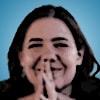Life is complicated. TV can help. “What Would TV Do?” attempts to explore life’s mysteries, problems and everyday situations with the assistance of the life lessons offered by television.
Back in 1969, the geniuses at the Children’s Television Workshop realized that television could actually be used to teach children while entertaining them. Thus, Sesame Street was born.
But Sesame Street is not the only show with something to teach us. No, all of television is educational. If you try hard enough.
Take spelling, for example. TV has its own rules for spelling — rules that are much more entertaining than what they taught you back in school. Also, TV spelling is cooler. And you want to be cool, don’t you?
What would TV do?
Change boring spelling.
TV knows that any word can be made into a cool, hip show title by changing the spelling around a little.
This is nothing new. In the late ’60s, television brought us The Monkees. The boring, “real” spelling of the title, The Monkeys, sounds like a National Geographic show about primates. The Monkees is a fun(!), hip(!) and irreverent(!) pop group on your TV!
Nothing has changed in the past few decades. The word “punked” means just about nothing (it doesn’t even appear in my spell checker). But Punk’d? Why, that’s a crazy TV show from ultra-cool(!) Ashton Kutcher!
Even in this fall season, we saw how TV spelling made things cooler. Running Wild could be another one of those nature programs. Boring! But Running Wilde is a comedy about a stupid rich guy. Fun! Granted, Running Wilde is a comedy that might get canceled at any moment… So maybe TV spelling isn’t enough? No, that can’t be it.
Replace letters with numbers.
Television knows that spelling is not creative enough. Why limit yourself to just 26 letters when there are an infinite number of numbers just waiting to be used?
Plus, everyone knows that math makes you smart. So when you replace letters with numbers in your spelling, people know that it’s intellectual. Numb3rs featured brainiac mathematicians who solved all of the FBI’s crimes using math that we didn’t understand. But it sounded cool. And we still got to feel smart, what with the 3 in the title showing intelligence so well.
Replace letters with symbols.
Even numbers are limiting. TV knows this and is ready with random symbols to fill the spelling void.
Want to make something creepy and mysterious? Replace a letter with a symbol. The Event did this to great effect in its promotional campaigns. That backwards “E” isn’t just a reminder to get your vision checked. Instead, it symbolizes deception. And fear. And the circuitous route to the truth we hope to find before The Event‘s cancellation.
TV also knows that symbols can save you from the censors. Want to take a mildly profane Twitter account and make a television show? No problem! Thanks to TV-spelling, the s-word becomes $#*!. You can almost see the original — that hint of edginess and danger remains for $#*! My Dad Says. And, since symbols have no inherent pronunciation, you can convince the world that $#*! spells “Bleep!”
When in doubt, bring in a Spelling.
Tori or Aaron. Either one will do. The presence of a Spelling pretty much guarantees a hit.
(Images courtesy of the Sesame Workshop, NBC and FOX)

Senior Writer, BuddyTV
Laurel grew up in Mamaroneck, NY, Grosse Pointe, MI and Bellevue WA. She then went on to live in places like Boston, Tucson, Houston, Wales, Tanzania, Prince Edward Island and New York City before heading back to Seattle. Ever since early childhood, when she became addicted to The Muppet Show, Laurel has watched far too much TV. Current favorites include Chuck, Modern Family, Supernatural, Mad Men and Community. Laurel received a BA in Astrophysics (yes, that is possible) from Colgate University and a PhD in Middle Eastern Studies and History of Science from Columbia University before she realized that television is much better than studying.



